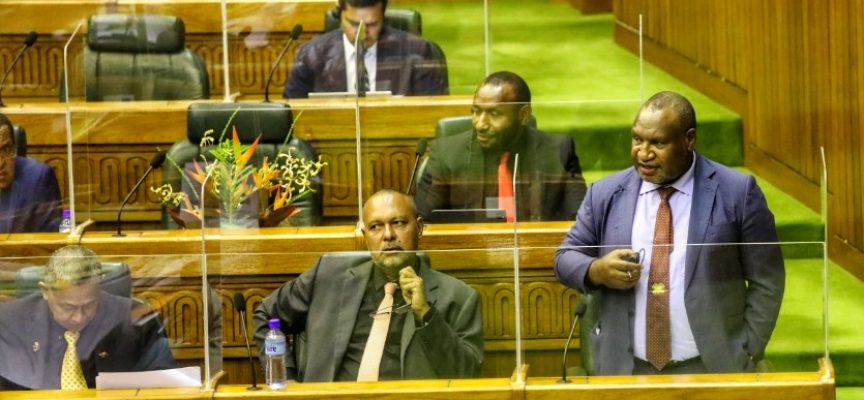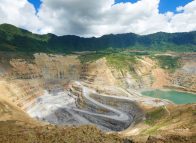Prime Minister James Marape has said there is about US$3 billion – roughly K10.31 billion – in foreign reserves at the Bank of PNG (BPNG). The PM said the money could be used to make overseas purchases and added that he would tell the Treasury to help the country’s largest fuel suppliers by giving them improved access to foreign exchange. This would result in a more consistent fuel supply for Papua New Guinea.
Marape said, “On the issue of forex, BPNG has more foreign reserve in our bank. Today we have about US$3 billion sitting in our foreign reserve. Importers like Puma (Energy) should have better access to the US dollar for their purchase than it was before. But if Puma is struggling, then I will get the Treasurer and his team to assist so that we don’t have a shortage of fuel in our country.”
PM Marape also said that the government was examining the idea of removing levies or excise on fuel, so the costs were not passed on to customers.
The prime minister gave his statements in response to questions in Parliament from Powes Parkop, the National Capital District governor. “Everyone may know that the increase in fuel price at the moment is because of the conflict between Ukraine and Russia,” Mr Parkop said.
“My understanding is that Napa Napa (refinery outside Port Moresby) has the capacity to supply PNG and also the Pacific region. But they have a problem of accessing crude oil. Half of it, or maybe three-quarters of it, comes from a market in Singapore. And to get crude oil, they need access to forex. My understanding is that the Napa Napa refinery had problems in accessing forex in order to purchase crude oil in Singapore.”
Parkop asked, “Is the Government working with the Napa Napa refinery to get more crude oil from Kutubu to supplement? Is there a strategy for us to get crude oil internally? Or get cheaper crude oil from the international market. From Venezuela, for example?”
Marape said, “For Kutubu crude, it is currently being exported. It has contracts. This is something that we have been looking at and going into the future. This was why we have been aggressive on the domestic market obligation side of gas for our country so that we move into downstream processing, which was something that we have overlooked for many years.”
Photo caption: PM Marape announcing the good news in Parliament today. Picture courtesy of PARLIAMENT MEDIA









